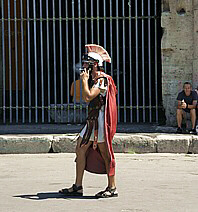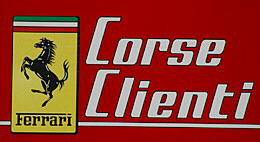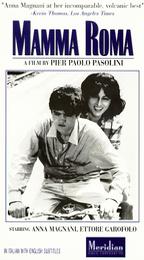| |
(4) Italy is incredibly varied. You find countless beautiful towns each with own history, architecture and works of art: not only Rome, Florence and Venice, but also Siena, Orvieto, Assisi, Naples, Palermo, Arezzo, Lucca, Genoa just to mention a few. Yet you also find medieval towns and inspiring churches (for ex. in Umbria), fishing ports, and charming little towns perched in unspoilt hills.
You also find any possible environment: varied and world-famous seaside regions (Italian Riviera in Liguria, the Amalfi coast, Sicily, Sardinia, a total of 7000 km of coast), beautiful and varied rural areas which inspired Renaissance painters, be it with cypress-studded landscapes or with scenic countryside. There are many mountains, different in their own right (the majestic Alps with skiing resorts, the Dolomite peaks interspersed with picture-perfect valleys). You find thriving plains (the Po plain), unexplored uplands (Calabria), fertile marine swamps (in Tuscany and in the Po delta), many impressive active volcanoes, a myriad of varied islands, some very large and with a totally different environment (Sicily and Sardinia), and also many lakes with world acclaimed sceneries.
(Right): A gladiator... having a smoke |
 |
(5) Also the Italians are unbelievably varied. You find 21 regions, with different history, different regional idioms called "dialects" (they are actually authentic languages dying out), different urban layouts and different landscapes. Their populations have different cuisines, different patron saints, and contrasting political orientations. The 21 regions actually form practically three different countries: North, Centre and South, each claiming supremacy over something, and actually having remarkably different societies and economies. Moreover, you find also regions with completely different languages: in Alto Adige half of the inhabitants are of German origin, there are valleys in the Alps in which people speak Ladin (an original language, not to be confused with Latin), uplands in Calabria were Greek Albanian is widely spoken (as they fled from the Turks in the 16th century), the Bergamo province in which Bergamasco (a sort of Germanic language) is popular, and Valle d'Aosta where French is the most spoken language.
(6) Cuisine and cooking are national passions, and they are tasteful, healthy, extraordinarily imaginative and varied. As mentioned in the restaurant page, there is no "Italian cuisine", but rather a galaxy of regional cuisines, each contributing to the rightful fame of the broader national one. You will not have to go to some fancy and expensive Italian restaurant to sample the countless dishes. You will find restaurants of all sorts everywhere, and you will discover that the most economic are also extremely good. The Italians will be happy then to explain to you all the nuances of this Mediterranean, natural cuisine.

The racehorse, Ferrari's logo |
|
(7) Since its very origin, the civilizations appeared in Italy (the Greek, the Etruscan, the Latin, the Byzantine, and naturally the Italian), have given an unprecedented importance to style, harmony with nature, good taste, and beauty. In no other country they are such a popular and widespread heritage. Since ancient times the Italians have been harbingers of style, fashion and art. Ferraris are not only the fastest cars, but also the most beautiful.
Italian, a melodious language, is also the language of music ("presto", "piano", "forte", "allegro" etc.). |
(8) The Italians are accommodating, savvy and sensible. Yet, if you are educated and you like to explore countries in depth, you will understand why the European scholars consider Italy the most complex, intricate - and intriguing - European country. Forget the silly stereotypes! You will be mesmerised finding out the historical reasons of the countless achievements or aspects of the Italian civilisation. It is a form of pleasure knowing more about the Renaissance society, about Leonardo's and Michelangelo's lives and contrasts, about the well organised society of ancient Rome and of the Church, about the fascinating history of the Marine Republics (Venice, Genoa, Pisa, Amalfi), about the contrast between the Church and the Central Empire in the Middle Age, and about the interaction between the ideas of the middle class, the working class, and the Church in the last centuries. You will be surprised to know that the Italians define themselves "People of Poets, Saints and Explorers". So you see, the reality is different from the silly stereotypes viewing the Italians as Latin lovers, mafiosi and provincial. In everyday life, you will frequently meet very educated and erudite people. As E. M. Forster wrote "the Italians are more marvellous than the land".
(9) The weather is usually good and sunny most of the year. In most places the air is clean and balsamic.
(10) Although the historical centre ("centro storico") of Rome is the largest in the world, and although the one of the countless Italian towns have an outstanding personality, also the other quarters and the surroundings are equally interesting. All of Rome 100 or so quarters have a specific character. It is often debated in Rome which is best, where life is more interesting, and so on. The peripheral quarters are not shabby and inexpressive suburbs. They contribute to the broader Roman culture, and they are the typical setting of Italian movies (think about those of Pier Paolo Pasolini, of Fellini, of the post-WW2 neorealist movies). Each quarter has its anecdotes, and most of them are also beautiful, or intriguing to say the least. You have wonderful views from Monte Mario, you can enjoy walking along the mannerly Parioli quarter, or experience Testaccio and its popular atmosphere, etc.
The surroundings of Rome are extremely charming and beautiful. There are thousands places around Rome, in any direction: 13 Roman "Castles" or poetic villages including Tivoli heading south, five lakes (in opposite directions), two rivers (Tiber and Aniene), the Etruscan towns north of Rome (Cerveteri, Tarquinia etc), ancient Roman towns (Ostia Antica, to the west), the charming seaside localities (Ladispoli, Fregene etc.), the mountain villages and resorts (Monterotondo, Terminillo), the inspiring fertile and undulated countryside with its sanctuaries, and - just a little further - Cassino with its abbey, Viterbo and its historical centre etc.
You will thus understand why this land of expressive, vibrant and imaginative people has given pasta and pizza, Verdi and Pavarotti, Raphael, Leonardo and Michelangelo, Dante and Machiavelli, Catholicism with its saints and martyrs, but also Fellini, Mastroianni and Sophia Loren, an outstanding sense of style and "Dolce Vita" (Sweet Life), and countless other charms - among which one should include the Italian women -.
Forster wrote "One doesn't come to Italy for niceness... one comes for life".
|

"Mamma Roma" of Pierpaolo Pasolini, with Anna Magnani. The director shot his movies in Rome's peripheral quarters |
10th + 1 reason! Why many come to visit Rome, and never leave? It is because you find yourself living in a miniature world, with myriad facets, countless things to see, to do and to undergo, and you experience kaleidoscopic sensations every day. When we Romans - native or adoptive - leave Rome we discover our sensuous attachment to the town. Although our favourite sport in town since the old days is to complain about it, when we leave we repent having done it, and we just want to go back. All other places seem tedious, life anywhere else seems made of useless picky rules, all other people seem not endowed with the tolerant, imaginative and extroverted bonhomie of the Romans.
Actually, Romans are endowed with a unique pro, which you will hardly find anywhere else. More than "tolerating", they will fully *accept you*, no matter where you come from, your political ideas, the colour of your skin, your profession, or if you are rich or poor. You can come from a distant planet, and have revolving aerials on your head, and still the Romans will accept you just the way you are. They will not leave you alone though: they will love knowing you, and they will ask you innocently and respectfully if your aerials work well or not... More on this
RELATED PAGES:
Back to the top

Visit Rome | Rome panoramic views | Rome apartments and villas | Inquire | Rome travel guide | Rome map | Service | Resources
Roman Homes homepage |
|

